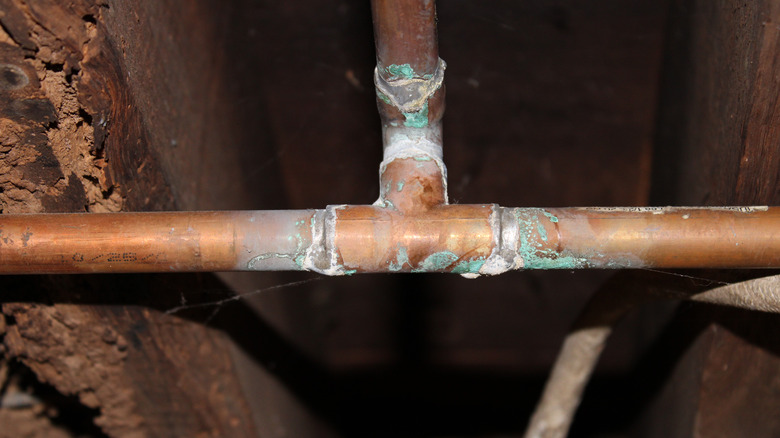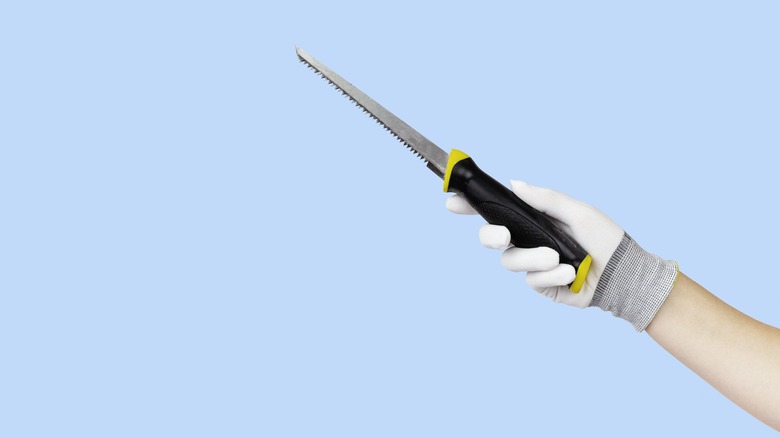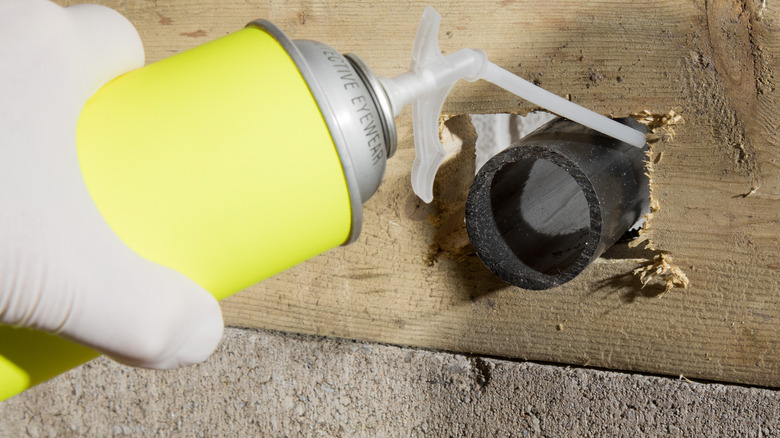Try This Easy Hack To Silence Creaky Old Pipes
One of the most stressful and jarring ways that our homes can ruin the serenity of a peaceful life is with noisy pipes. The sound seems to come from nowhere, which is ominous, and as the issue often happens on cold winter nights, it can have a serious and negative effect on your sleep, warns Little House on the Corner.
If this is the first time you're hearing noises from your pipes, it's important to make sure it's not a leak. According to Reader's Digest, dripping sounds and a musty smell are the classic indicators of a leaky pipe. If you suspect a leak, shut off the water and investigate further to avoid any structural water damage.
Once you are sure that there isn't a leak in your walls or floors, then the good news is that the two most common causes of pipe noise rarely cause any damage. The most common culprit is expansion and contraction in the pipes due to heat, explains The Money Pit. This is something they are designed to do. However, where the pipe passes through wood or is otherwise attached to the wall or floor, expansion can cause the pipes to rub and knock against these fixtures and cause a lot of annoying squeaks and creaks.
Time for some precision cutting
Hot water entering pipes heats up the metal and causes the pipes themselves to expand, sometimes by significant amounts. When passing through tight gaps in walls and floors, a pipe that expands even slightly will rub against the wood. This can lead to strange sounds such as clicking, squeaking, or banging, depending on the exact acoustics. According to the Herald-Tribune, cutting away the wood in the area where it is impacting the pipe is a simple fix. Pipes pass through narrow gaps in plenty of places without causing issue, and giving these problem spots adequate space will go a long way to eradicating your noise problems.
In order to cut away the material close to the pipe, a hacksaw might work, but for operating in tight spaces, the pointed end and precise piercing of a keyhole saw is probably the best option, notes Home Repair Geek. Before making any cuts, however, you must ensure that the pipe itself will be fully supported after you remove the material that is causing the friction. According to the Genesee Valley Penny Saver, the pipe shouldn't move more than an inch in any direction while you're working — any big shifts may cause damage to the joints, which would be a much more annoying and expensive problem.
Sound and heat insulation
Anytime that you consider making holes in any part of your home, it's worth also considering the impact that has on insulation. Widening passageways for pipes to pass through potentially increases how much air escapes the room in question, which can have knock-on effects for heating and cooling your home.
The good news is that better insulation in the noisy area can also help mitigate the issue of creaky pipes. According to Moe, insulating a pipe is one of the best fixes for creaks and taps. This makes sense — the soft layer of foam insulating material can act as a cushion to further reduce friction. Plus the sound insulation will muffle any noises that do get produced, minimizing the noisiness of your pipes.
Wrapping your pipes with foam insulation more completely (as in, throughout your home), can also reduce noise. According to Sinclair, doing this helps to equalize the temperature throughout your plumbing system — which means pipe expansion and contraction happen much slower and more calmly, and don't create anywhere near as much noise.



